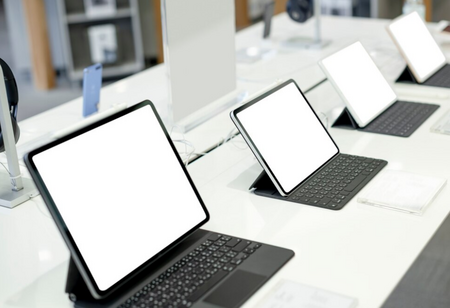India Reversed Course on its Laptop Licensing Policy in Response to US Resistance
By Consultants Review Team
 News agency Reuters stated that US officials staged a covert lobbying attempt to force the recent reversal of India's laptop licensing policy. According to government documents from the news agency, US officials who played a key role in the policy reversal over laptop licensing were also worried about India's adherence to WTO regulations and potential future regulations.
News agency Reuters stated that US officials staged a covert lobbying attempt to force the recent reversal of India's laptop licensing policy. According to government documents from the news agency, US officials who played a key role in the policy reversal over laptop licensing were also worried about India's adherence to WTO regulations and potential future regulations.
The regulation, which was unveiled in August, mandated that businesses like Apple, Dell, and HP secure licenses for all servers, laptops, tablets, and desktop computers that were imported. It raised questions about possible delays in sales. But the administration quickly withdrew the program, choosing instead to keep an eye on imports and review the situation a year later.
The leaked emails demonstrated how Washington was alarmed by India's limitations and how the US administration successfully lobbied India to change its mind.
Concerns about India's "out-of-the-blue" policy changes have persisted among US officials, who claim that they have created an unpredictable economic climate. But according to the administration, such initiatives are meant to assist all parties involved and promote international investment.
US authorities took issue with India's sudden policy shift, pointing out that no previous warning or consultation was given before implementing the laptop licensing regime.
While the existing monitoring mechanism has little effect on trade, the USTR is nonetheless watchful to ensure India complies with its WTO responsibilities, according to Brendan Lynch, acting assistant US trade representative for South and Central Asia, who spoke to news agency Reuters.
According to the Reuters story, India's Commerce Ministry recognized Tai's worries but did not elaborate on the policy change or respond to the US communications. According to three Indian officials cited in the news agency's story, the decision to reverse course was made when it was realized that local production of laptops and tablets was not yet important.







